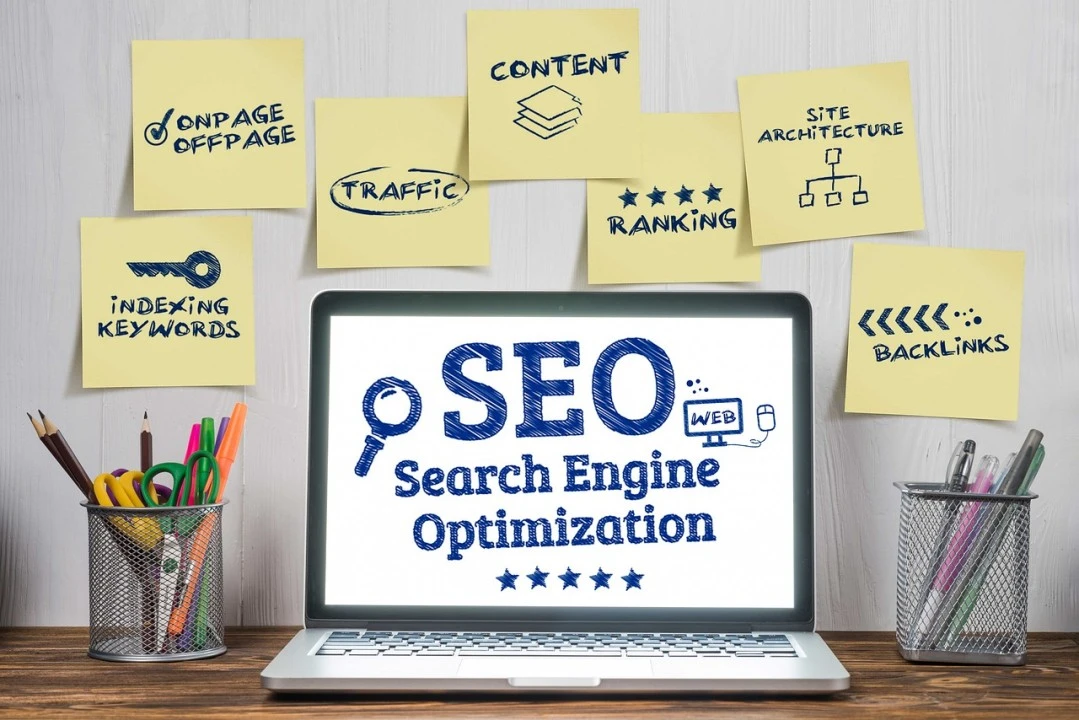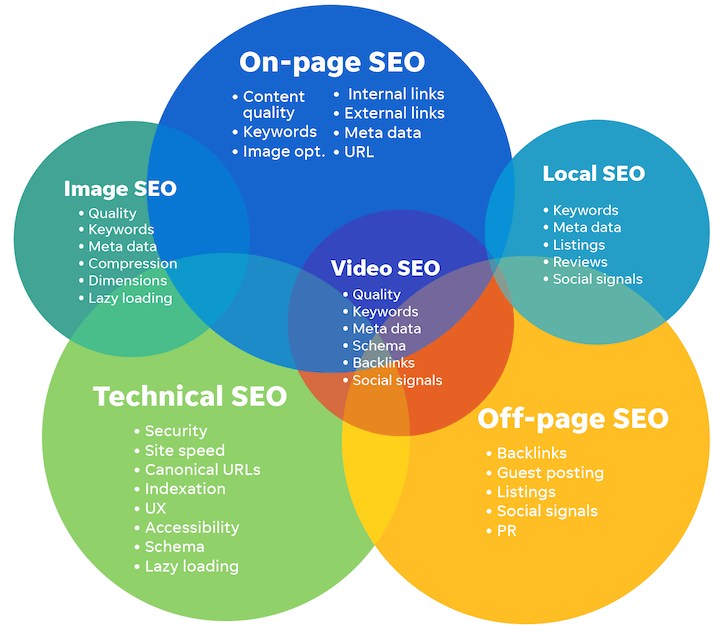
Introduction
Search Engine Optimization is known as SEO. Enhancing a website’s exposure and position in search engine results pages (SERPs) is the process of doing this. To optimize a website’s structure, content, and other components for search engines and ultimately increase organic (non-paid) traffic, search engine optimization (SEO) is a multifaceted process. Enhancing a website’s online presence, improving its likelihood of showing up in pertinent searches, and drawing in targeted viewers who are more likely to become customers or interact with the website’s content are the objectives of search engine optimization (SEO).
In the vast and competitive landscape of the internet, having a well-optimized website is crucial for businesses and individuals alike. Search Engine Optimization (SEO) is the practice of improving a website’s visibility and ranking in search engine results pages (SERPs). By implementing effective SEO strategies, businesses can attract organic, targeted traffic, increase their online visibility, and ultimately drive conversions. In this blog post, we will delve into the world of SEO, exploring its key concepts, strategies, and the benefits it brings to businesses.
Understanding the Basics of SEO
Search Engine Optimization is about making your website more accessible to search engines like Google, Bing, and Yahoo. It involves optimizing various aspects of your website to improve its visibility and relevance in search engine rankings. SEO encompasses on-page optimization, off-page optimization, and technical optimization, all aimed at enhancing a website’s performance and visibility.

Keyword Research: The Foundation of SEO
Keyword research is a fundamental aspect of SEO. It involves identifying the keywords and phrases that your target audience uses when searching for products, services, or information related to your business. By understanding these keywords, you can optimize your website’s content to align with users’ search intent and improve your chances of ranking higher in search results.
On-Page Optimization: Enhancing Website Relevance
On-page optimization refers to optimizing the elements within your website to improve its relevance to search queries. This includes optimizing meta tags (title tags, meta descriptions), headings, URL structures, and content. By strategically incorporating relevant keywords in these elements, search engines gain a better understanding of your website’s content, increasing its chances of ranking for relevant search queries.
Quality Content: The Kingpin of SEO
In the realm of SEO, content is king. High-quality, informative, and engaging content not only attracts users but also earns valuable backlinks from other websites. Search engines value websites with valuable content, as it indicates relevance and authority. By consistently producing compelling content that addresses users’ search queries and satisfies their needs, you can establish your website as a trusted resource, leading to improved rankings and increased organic traffic.

Link Building and Off-Page Optimization
Link building is a crucial off-page SEO strategy that involves acquiring high-quality backlinks from reputable websites. Backlinks act as votes of confidence, signaling to search engines that your website is trustworthy and authoritative. However, it’s essential to focus on quality over quantity when it comes to link building, as search engines have become increasingly sophisticated in evaluating the credibility of backlinks. Building relationships with influencers, guest blogging, and creating shareable content are some effective ways to earn valuable backlinks.
Technical SEO: Ensuring a Smooth User Experience
Technical SEO focuses on optimizing the technical aspects of your website to enhance its performance and user experience. This includes improving website speed, implementing mobile-friendly designs, optimizing site structure and navigation, and ensuring proper indexing by search engines. A well-optimized website that loads quickly is responsive across devices, and provides a seamless user experience is more likely to rank higher in search results.

Monitoring, Analysis, and Adaptation
SEO is an ongoing process that requires continuous monitoring, analysis, and adaptation. Tools like Google Analytics and Google Search Console provide valuable insights into your website’s performance, traffic sources, and user behavior.
The Benefits of SEO for Businesses
Investing in SEO can yield numerous benefits for businesses, including:
Increased Organic Traffic: Higher search engine rankings result in improved visibility and increased organic traffic. By targeting relevant keywords and optimizing your website, you attract users who are actively searching for your products or services.
Enhanced Brand Visibility and Credibility: Ranking on the first page of search results positions your brand as a credible and trustworthy authority in your industry. Users tend to associate top search results with industry leaders, increasing brand visibility and credibility.
Higher Conversion Rates: Organic traffic generated through SEO tends to have higher conversion rates compared to other marketing channels. Users who find your website through organic search are typically more engaged and more likely to convert into customers or leads.
Cost-Effective Marketing: SEO is a cost-effective marketing strategy compared to paid advertising. While it requires time and effort, the long-term benefits of organic traffic can outweigh the costs associated with other advertising methods.
Competitive Edge: In competitive industries, SEO can give your business a competitive edge by outranking competitors in search results. Higher visibility and better rankings translate into more opportunities to attract customers and grow your market share.

Conclusion
In today’s digital landscape, Search Engine Optimization (SEO) plays a pivotal role in driving online success. By implementing effective SEO strategies, businesses can improve their website’s visibility, attract targeted organic traffic, and achieve higher conversion rates. Understanding the fundamentals of SEO, conducting thorough keyword research, optimizing on-page and off-page elements, building quality backlinks, and monitoring performance are key steps toward achieving SEO success. Embracing SEO is essential for businesses of all sizes and industries, as it provides a pathway to increased brand visibility, credibility, and organic traffic. So, start harnessing the power of SEO and unlocking the potential for online success in the ever-expanding digital world.






